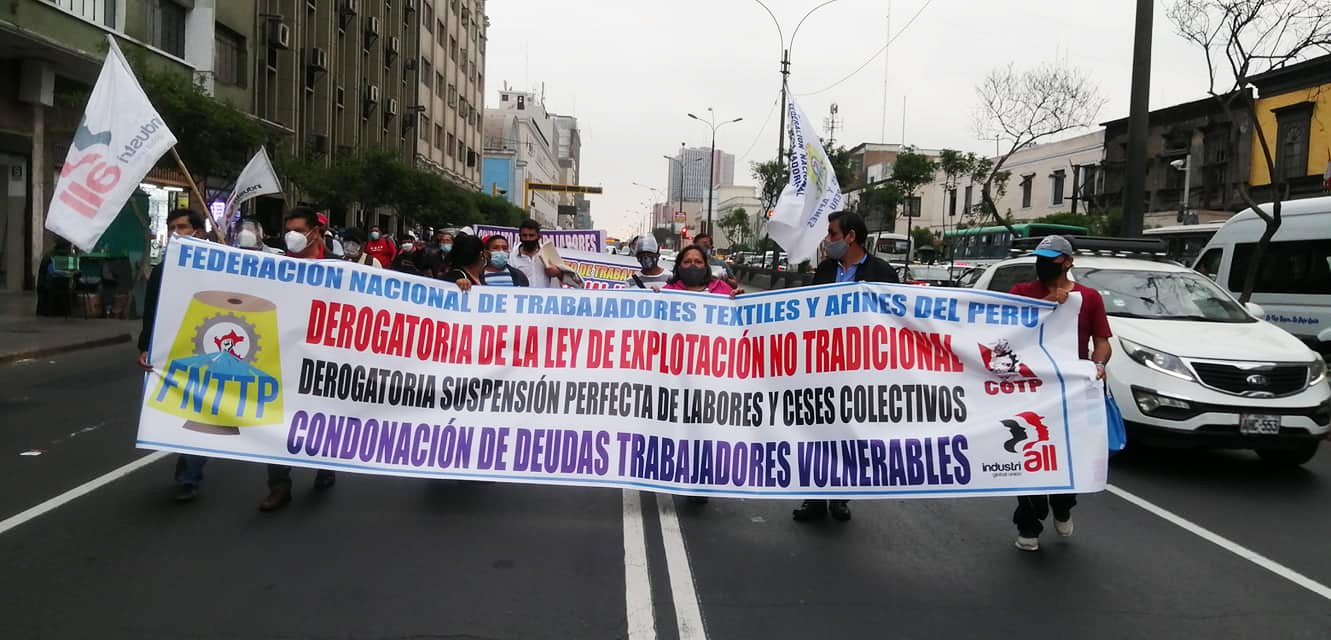20 January, 2021In December, the Federation of textile workers of Peru (FNTTP) delivered a document called "Platform for a claim for a fair and sustainable textile and clothing industry” to the Labor and social security commission.
The platform contains a series of proposals directed at employers and the government to promote a sustainable industrial policy in the textile sector. It includes proposals to withdraw the anti-union laws that plague the sector, the establishment of measures to protect decent employment and others measures to safeguard national production.
Union representatives met with the vice president of the commission and the president of the Congress to explain that sustainable industrial policy must include an effective application of labour standards.
This includes respect for the right to organize, the promotion of collective bargaining, the promotion of social dialogue, the provision of resources for labour inspection and labour laws that restrict precarious work.
The demand to withdraw law no. 22342 promoting non-traditional exports is long-standing, but even more urgent now in order to protect workers during the crisis, according to the union.
The law allows companies that produce for export to hire staff on short-term contracts to fulfill specific export orders. The FNTTP argues that the functions that these workers carry out are permanent ones: the position existed before the worker was hired and will remain once the contract ends.
The FNTTP says that in addition, the law is used to deny workers their rights, such as job security, living wage, access to health coverage and pensions as well as the right to organize and bargain collectively. It violates international standards and the codes of conduct of global brands that source from Peru and is not sustainable.
“We thank the president of Congress for personally listening to the problems of thousands of unionized and non-unionized textile workers. With this, we have have resumed a fight that started a few years ago to repeal law no. 22342. We will continue to campaign and protest in the street. We will achieve it with actions and solidarity,”
says the FNTTP, who continued demonstrations to promote their demands throughout December and January.
IndustriALL deputy regional secretary Laura Carter says:
“When Fujimori introduced law no. 22342 in 1978 as a temporary measure, it was a disgrace. Today, 40 years later, it still is and to an even greater extent.
“These abusive working conditions must end. If Peru’s textile sector wants a future in a changing world, it has to be fair and sustainable, based on decent work and social dialogue.”




